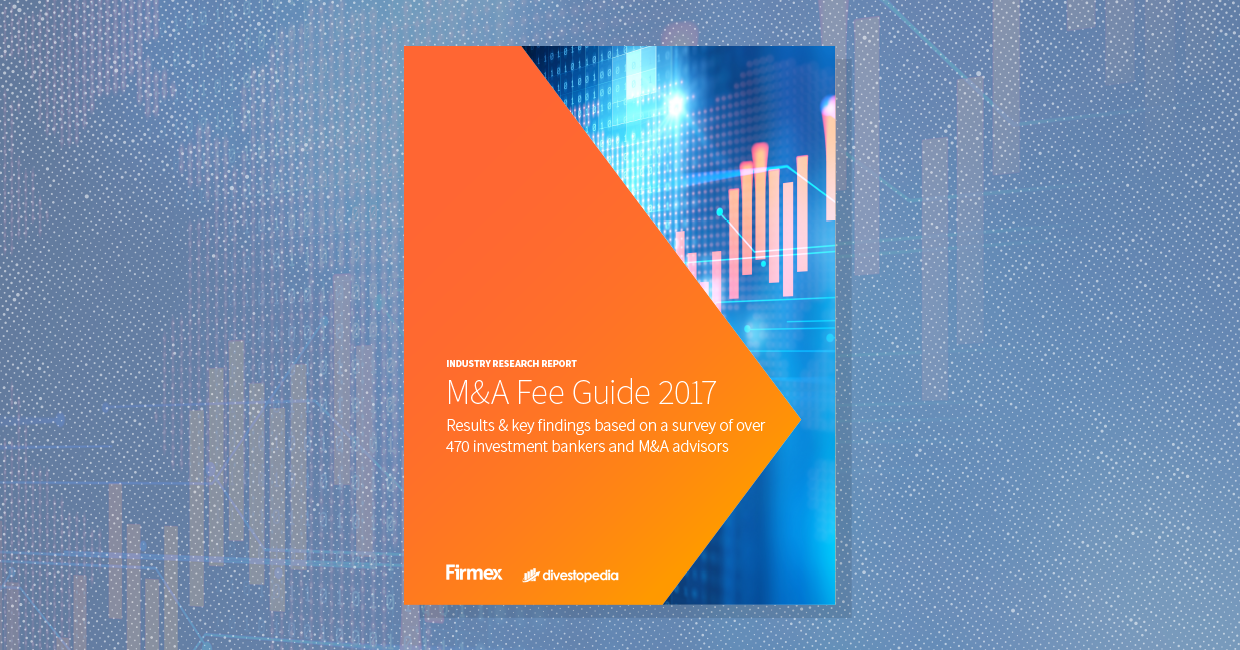Fill out the form below to download your copy instantly.
John Carvalho is President of Divestopedia, a leading resource for all topics related to middle market M&A. For over 15 years, John has executed numerous valuation, financing, acquisition and divestiture engagement for middle market businesses. He is passionate about improving the transparency and efficiency in M&A deal-making. John is also a practicing M&A advisor at his firm, Stone Oak Capital Inc.
Information about M&A advisory fees has been surprisingly difficult to track down. Why are M&A fees rarely discussed in public forums?
I don’t think it’s that investment bankers or advisors have been reluctant to discuss the subject of fees. The overwhelming response to our survey – over 470 investment bankers and advisors from around the world completed the survey – would seem to suggest the opposite. And the M&A professionals I know personally are eager to have an open and informed discussion about the fees they charge and how they’re structured. To be honest, I think it’s simply that no one asked them, at least not in a broad and systematic way. A number of M&A firms have accumulated internal data on fee structures and ranges, but this report is unique in that it provides a comparative view among many firms across the M&A middle market globally.
What are the key findings in the report?
A couple of interesting results come to mind:
- Success fee structures that more closely align bankers’ interests with sellers, where both parties are rewarded for a higher total deal value, appear to be more prevalent in the marketplace with 45% of respondents indicating that a scaled percentage success fee was used in the engagement structures.
- There is no industry-standard definition of what constitutes purchase price in a transaction upon which a success fee is calculated, nor is there industry alignment on the timing of when a success fee is paid. That said, 76% of respondents include earnouts in their calculation of success fees.

Was there anything in the survey results that particularly surprised you?
One of the most surprising findings is the extent to which M&A success fees vary by different regions and major city centers. For example, a majority of respondents in the US Pacific indicated success fees of 2-4% for a $50 million deal, whereas, in the US Northeast, a majority of respondents indicated success fees of 1-2% for a same sized deal. Given these significant differences, M&A advisors should ‘think locally’ when assessing their fees and not rely exclusively on national averages. I think this will be a real eye-opener for advisors when comparing their fee structures with their peers in the particular local markets where they do business.
Why is getting this information out there and making it easy to find important?
It’s valuable for two reasons: Business owners who are looking to sell their company want to pay reasonable fees for good advice, but in the absence of publicly available information on M&A fee structures, how can they make informed decisions about what is being charged and why? Secondly, how can M&A professionals ensure that the fees they’re charging are in step with their peers and aligned with the interests and expectations of their clients?
Our hope is that this annual report will provide an up-to-date resource for business owners to determine appropriate fees when hiring investment bankers and M&A advisors. For M&A practitioners, it should provide a starting point for conversations on fair fee structures.
Does the lack of transparency around fees affect the dynamic between advisors and potential clients?
Lack of transparency makes it really hard for business owners to determine whether the fees they are being asked to pay when hiring investment bankers are fair and appropriate. Without baseline guidance on fee structures, owners can’t be sure if the fees they’re being asked to pay are reasonable. This adds another layer of complexity to a process that is already challenging. Choosing an M&A advisor is one of the most important decisions a business owner will make when exiting a business, so the more educated and informed you can be about fee structures going in, the better.
You’re a practicing M&A professional. How can investment bankers, advisors and business owners make use of the information in this report?
For M&A professionals, sharing the report with prospective clients demonstrates an openness to discuss a topic that has been somewhat secretive in the M&A industry. It can also help provide supporting evidence for the fees and structure that are being proposed in M&A engagements.
For business owners, this report offers an invaluable tool in negotiating fees and terms for investment banking engagements. Of course, in addition to fees, due diligence must be performed on the quality and experience of the M&A advisor. The level of the success fee doesn’t matter much if an M&A transaction is not successfully completed or business owners don’t feel like they got the best outcome.
